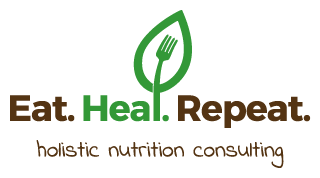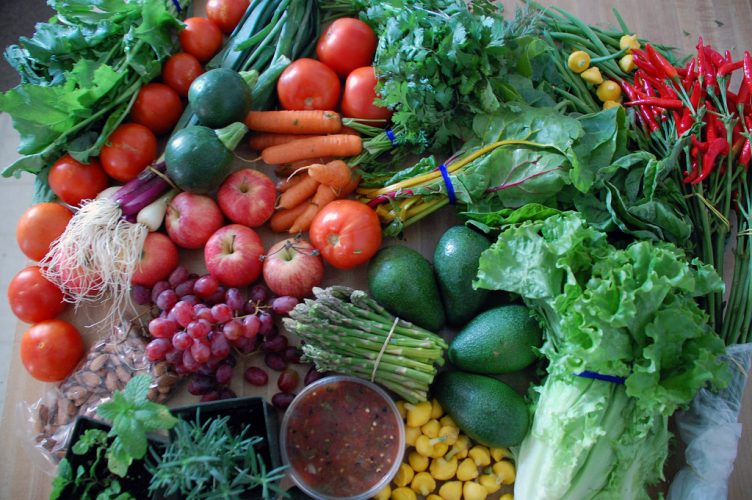What do YOU think of when you hear the term ‘free radicals‘? Personally, I had images of high school bullies, political fanatics or soccer hooligans pop up at the thought of a free radical – until I studied the concept during my nutrition training. In short, radicals are highly reactive chemicals that can damage your cells, yet – here’s a shocker – you make them constantly, whether you like it or not. But let’s start from the beginning:
What are free radicals?
Whenever your body converts food into energy, it creates a byproduct called free radicals. These can also result from exposure to sunlight, air and environmental toxins (including heavy metals and cigarette smoke), or be found in your food (especially in damaged fats). Sometimes your body’s immune cells can create them on purpose, to deal with intruders. Interestingly, strenuous exercise in untrained individuals (or athletes) can also increase the production of free radicals.
What all free radicals have in common is that they are unstable: they lack an electron, and thus try to steal it from substances around them. Two things happen to a molecule which has come in contact with a free radical and lost an electron: 1. It is chemically changed – and in many cases damaged. And 2. It turns into an electron seeker (a.k.a. free radical) itself and becomes part of a chain reaction.
Your body needs some free radicals to carry out vital tasks within the cells. However, while it is well-equipped to deal with this process as long as it is healthy and functioning efficiently, an excess of free radicals can cause damage to the substances in our cells and even to our DNA. It has been linked to accelerated biological ageing, energy deficiency and dysfunctions of nearly all organ systems, which may manifest in the form of chronic diseases or pain.
So how can we keep these biochemical ‘hooligans’ from causing damage?
I’m glad you asked. Your body actually produces some chemicals that help it calm down or neutralize excess free radicals. However, it also relies on some more of these chemicals/micronutrients, which it mostly gets from your diet. These free-radical-scavenging chemicals are called antioxidants.
What exactly are antioxidants, and do you really need them?
To neutralize free radicals, your body needs antioxidants, or electron donors. Interestingly, even antioxidants become electron thieves themselves when they neutralize a free radical. They, in turn, need another antioxidant to help restore balance. This is why regularly consuming a variety of antioxidants is key, and not just consuming one specific kind. Your body can produce glutathione, coenzyme Q10, and lipoic acid, and through your diet you can add flavonoids (plant antioxidants), minerals such as zinc, selenium and manganese, and vitamins A, C and E.
The question is not whether or not you need antioxidants. You do. The question is how much you need, and if you are getting enough. Antioxidant supplements may seem like an easy answer. However, supplemental antioxidants in large doses may cause an imbalance, because they keep the necessary free radicals from doing their job. The name of the game here is balance. The solution: Get your antioxidants from fresh whole foods! No supplement compares to healthy eating!
Here are some great antioxidant food sources (a selection):
Two excellent antioxidant sources, vitamins A and E, are best consumed with a small amount of high quality fat(s) for optimal absorption: Get your beta-carotine and vitamin A from carrots, sweet potatoes and other red, yellow and orange produce, and your vitamin E from nuts, seeds and green leafy vegetables. Don’t forget to add a drizzle of olive oil or a bite of avocado, or even toss your carrots in some butter or ghee, to help your body process these vitamins.
Antioxidant phytonutrients (plant nutrients) can be found in abundance in colorful fruit and vegetables. Flavonoids occur in tomatoes, peppers, citrus fruit and berries, as well as in teas and dark chocolate (Now there’s some good news!). Dark leafy greens such as spinach, kale, chard or broccoli contain beneficial lutein.
Find your daily selenium in seafood, meat (especially organ meats), dates, (brazil) nuts and legumes. Oysters, pastured or wild animal proteins (meat and seafood), yogurt, nuts and legumes are great sources of zinc. For manganese, turn to oats, brown rice, cloves, avocado, adzuki, edamame and garbanzo beans.
Sounds tasty, right? Anything else you should know?
Exercise regularly, but in moderation
It is worth noting that exercise can be a double-edged sword when it comes to free radical damage vs. antioxidant production. As mentioned above, weekend warriors who overexert themselves, or endurance athletes who have a demanding workout or race routine, may experience increased free radical damage, and/or require extra antioxidants for protection. However, a regular, balanced exercise routine can strengthen your body’s antioxidant systems, as long as it is accompanied by a nutrient-dense diet.
Avoid anything that increases free radical output
This includes smoking, prolonged sun exposure, any sort of environmental or food-borne toxins (heavy metals, some medications, air pollution, etc.) and anything that triggers or perpetuates inflammation (sugars, foods you are sensitive to, processed and nutrient-poor foods, damaged fats and oils, etc.). If you are dealing with any of these factors in your life, you may have an increased need for antioxidants that you may or may not be filling with your diet.
Rest up
Stress – mental, physical or emotional (even imagined stress) – can be highly inflammatory and inhibit your body’s repair mechanisms. The same is true for sleep deprivation. If you are unable to avoid some of life’s stressors, try acquiring a repertoire of stress management techniques. Not sure how to get (back) to a restful six to eight hours of sleep per night? Explore your nutritional and hormonal status and work on soothing bedtime rituals and routines and develop what experts call personal sleep-hygiene. A holistic health professional can help out with ideas and coaching to get you there, if necessary.
Not sure where to start? Changes are daunting?
If you’re unsure about meeting your body’s antioxidant needs with your diet, instead of running off and buying fancy powders or capsules, talk to a health and/or nutrition professional and learn how to best support your body with smart lifestyle adjustments, real food, and minimal supplementation if necessary. Until then, learn how to zen out and stock your kitchen with colorful produce, to keep your ‘hooligans’ under control, and cell damage at bay.
References available upon request

